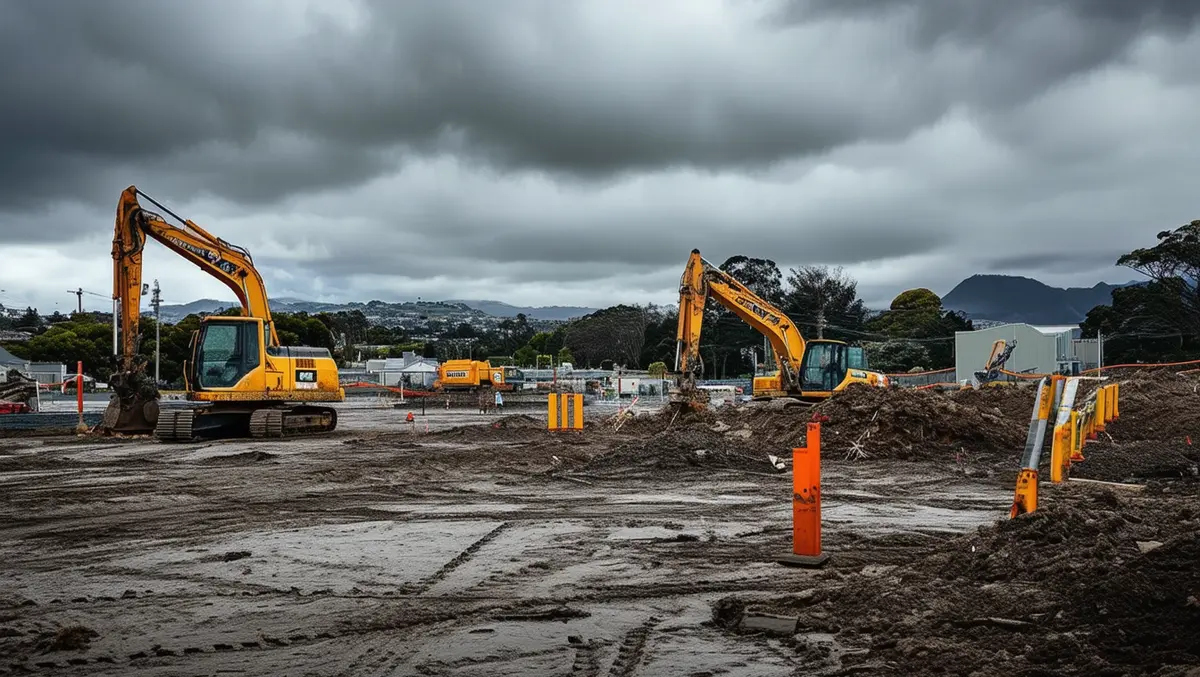
NZ civil construction sector faces downturn & confidence crisis
The 2024 Construction Industry Survey has revealed a challenging landscape for New Zealand's civil construction sector, marked by a significant downturn and declining confidence. This annual survey, a collaborative effort between Teletrac Navman and Civil Contractors New Zealand (CCNZ), indicates that the sector is grappling with a lack of work, increasing compliance costs, and pervasive project cost overruns.
This survey, which is the first since the 2023 election, highlights that 64 percent of businesses identify a severe shortage of work as their primary issue, a stark rise from 29 percent in 2023. Alan Pollard, CEO of CCNZ, underscores the gravity of the situation. "The industry's landscape has dramatically changed in the past 12 months, with an acute shortage of work now being the primary challenge civil construction businesses face. If we conducted the survey again today, the response would be even more dire," he stated.
Pollard elaborated on the concerns of the industry's stakeholders, saying, "Right now, I am fielding daily emails from our members, who are deeply concerned that their businesses may not survive. I can't stress enough the importance of a well-defined, committed, and funded pipeline of work. The government needs to act quickly to restore business confidence. Promises alone won't get things built. Only a committed and adequately funded programme of work will give businesses the assurance they need to invest in the people and technology required to get infrastructure works done."
Adding to the sector's woes, 57 percent of businesses reported facing difficulties with local and central government procurement guidelines and work consent conditions, up from 36 percent the previous year. Rising compliance costs continue to strain businesses, with 71 percent of respondents citing this issue, while 64 percent report project cost overruns. This challenging operational environment is further reflected in the significant drop in revenue expectations; only 37 percent of businesses anticipate revenue growth in 2024, down from 47 percent in 2023. Additionally, just 20 percent of businesses feel optimistic about the future.
One somewhat positive note is the increased confidence in New Zealand's infrastructure to handle climate change impacts, which has improved from 7 percent in 2023 to 13 percent in 2024. However, this minor uptick does little to offset the broader issues the industry faces.
The labour market within the civil construction sector also reflects the overall downturn. For the first time since the survey's inception in 2017, there has been a notable drop in labour demand. Only 39 percent of businesses expect to require additional staff, down from 54 percent in 2023. The industry is thus experiencing a trend of downsizing, an issue Pollard acknowledges as difficult for many companies. "Given the amount of long-term infrastructure work projected, this is a poor time for the industry to down-size, but the current market means many companies are currently left with little choice," he said.
Despite the prevailing challenges, businesses are increasingly turning to technology to enhance efficiency and project outcomes. The survey indicates strong integration of critical technologies such as fleet management, which is employed by 77 percent of businesses, and machine control technology, utilised by 63 percent. Close to 40 percent of organisations now mandate specific technologies for bidding on projects, up from 27 percent in 2023.
Jim French, Construction Industry Specialist at Teletrac Navman, highlights the importance of digital adoption in the current climate. "In this environment of uncertainty, businesses must proactively accelerate their digital adoption to stay competitive. Advanced technologies such as fleet management, machine control, and health and safety monitoring software are crucial allies as they increase the chance of securing contracts and planning for the future," he noted.
The survey also underscores the necessity for a strategic focus on government project pipelines and diversity initiatives. A clearer pipeline of government projects is viewed by 56 percent of respondents as essential for positive impacts, while 61 percent emphasise that diversity initiatives positively affect productivity. Additionally, the exploration of sustainable energy solutions, such as hydrogen, is gaining traction, with over a quarter of businesses considering it as a future energy source.
The findings of the 2024 Construction Industry Survey will be subject to further discussion at the Civil Contractors Conference in Invercargill.


